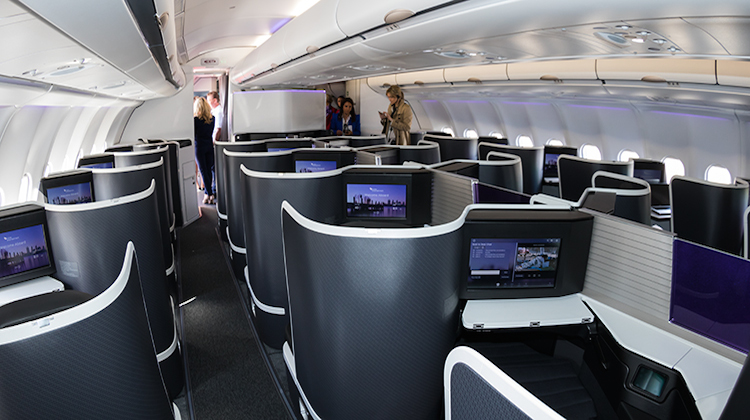
Australian domestic airfares for business class and restricted economy tickets were higher in September, new figures show.
However, the Bureau of Infrastructure, Transport and Regional Economics (BITRE) monthly measure of airfares showed there was some relief for those travelling on the lowest, or best discount, economy fares in September.
The BITRE measure of domestic business class airfares was at 95.3 index points in September, up from 94.9 points a year earlier.
The restricted economy index was also higher than a year ago at 83.7 points, compared with 80.4 points in the prior corresponding period.
Restricted economy is at the highest level since a change to the index in June 2011, when Virgin Australia and Jetstar introduced simplified fare structures that brought down the cost of so-called flexible tickets.
By contrast, the best discount fell to 71.1 points, from 73.6 points in September 2016.
The BITRE air fare series is a price index of the lowest available fare in each fare class, weighted over selected routes.
Figures from an International Air Transport Association (IATA) report showed the Australian domestic market continued be flat, with airlines cutting capacity in an effort to better match demand with the number of seats in the market.
Local carriers experienced an 0.6 per cent decline in demand, measured by revenue passenger kilometres (RPK) in the seven months to July 2017, while capacity, or available seat kilometres (ASK) contracted 2.4 per cent. As a consequence, average load factors rose 1.4 percentage points to 77.6 per cent.
“Both demand and capacity have now trended downwards at an annualized rate of around two per cent since the start of 2017, which has helped to support the load factor,” IATA’s latest passenger traffic report said.
Qantas chief executive Alan Joyce told reporters the company’s 2016/17 results presentation there encouraging signs that emerged in the domestic market during the latter part of the previous financial year had continued into 2017/18.
“The domestic market continues to perform very well and we expect that to continue,” Joyce said.
“We are seeing strength in every sector apart from resources.”















